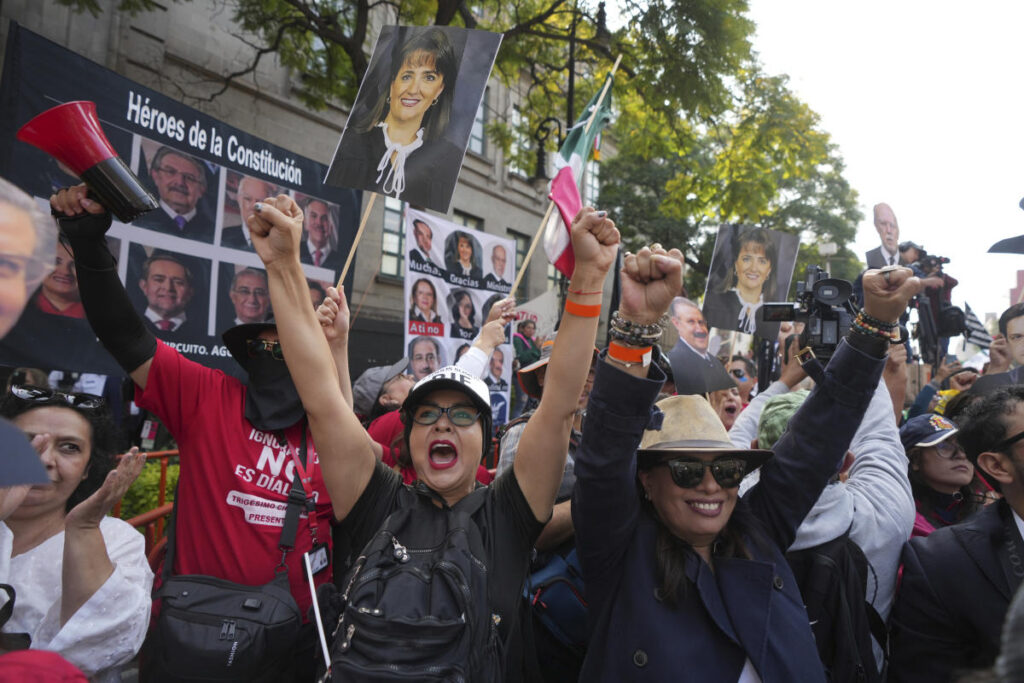On Tuesday, Mexico’s Supreme Court rejected a proposal aimed at limiting the upcoming judicial overhaul, which mandates that all judges stand for election. The proposal aimed to restrict these elections solely to Supreme Court justices, rather than extending this requirement to all judges across the nation as stipulated by a constitutional change approved in September. Although seven out of the eleven justices supported the limitation, a special majority of eight votes was necessary for the proposal to succeed. The court clarified that this ruling was not a determination on the constitutionality of the judicial overhaul itself but was limited to rejecting challenges posed by opposition parties regarding the implementation.
The backdrop to this ruling includes the recent resignations of eight justices who opted to leave their positions rather than participate in the elections slated for next June. In contrast, the remaining three justices indicated their intention to run in these elections. This situation reflects the ongoing tensions within the court and the broader judiciary, further complicating the political landscape. Meanwhile, a related constitutional amendment was approved by both Mexico’s Congress and numerous state legislatures, which aims to safeguard constitutional amendments from legal challenges. However, the Supreme Court ruled that the amendment did not affect this case, as the challenges had been filed prior to its approval.
The judicial overhaul has sparked significant domestic and international concerns, drawing protests from thousands of demonstrators outside the Supreme Court on the day of the ruling. Critics are particularly apprehensive about the potential politicization of the judiciary, fearing that requiring judges to stand for election could undermine the independence of the judicial system. There is a strong belief among opponents that this change might blur the lines between the branches of government, creating an environment where judicial decisions could be influenced by political considerations.
President Claudia Sheinbaum has voiced her support for the judicial overhaul, stressing that the initiative originally proposed by former President Andrés Manuel López Obrador aims to eliminate corruption from the judiciary. Sheinbaum’s administration aligns with López Obrador’s goal of reforming judicial processes, reflecting a broader agenda focused on enhancing transparency and accountability within government institutions. However, the implications of this overhaul on the rule of law and the existing structures of legal authority remain contentious.
The court’s ruling and the accompanying political dynamics signal a profound shift in Mexico’s approach to judicial administration and governance. Advocates for the overhaul argue that these changes are necessary for accountability, while opponents warn of the dangers of entrenching partisan politics within the judiciary. The tension highlights a broader struggle between various factions within Mexican politics, notably regarding the independence of state institutions and the preservation of democratic principles.
As the judicial elections approach, the public and legal communities will be watching closely to see how these developments unfold and what they may entail for the future of law and governance in Mexico. The situation remains fluid, with the potential for further legal challenges and possible adjustments to the evolving political landscape. The Supreme Court’s decisions and the actions of its members in the coming months will likely set significant precedents for how justice is administered in Mexico, challenging the boundaries between judicial independence and political influence.

